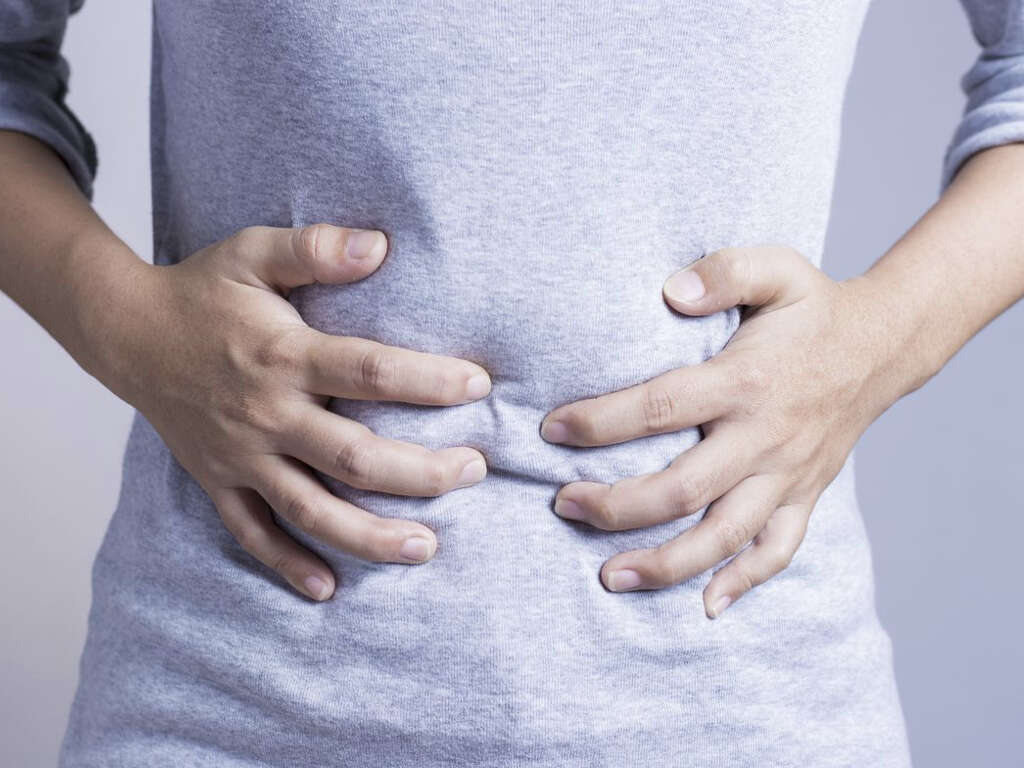10 Ascites Symptoms
 Article Sources
Article Sources
- 1. What Is Ascites? 'What Is Ascites (Fluid in the Abdomen)? '| Coping Physically | Cancer Research UK, 26 Apr. 2021, www.cancerresearchuk.org/about-cancer/coping/physically/fluid-abdomen-ascites/about
- 2. 'Causes. Stanford Health Care (SHC) - Stanford Medical Center, 5 June 2019, stanfordhealthcare.org/medical-conditions/digestion-and-metabolic-health/chronic-nausea/causes.html
- 3. 'Sodium Bicarbonate (Oral Route, Intravenous Route, Subcutaneous Route) Side Effects.' Mayo Clinic, Mayo Foundation for Medical Education and Research, 1 Mar. 2021,
- 4. 'Over-the-Counter Laxatives for Constipation:' Use with Caution. Mayo Clinic, Mayo Foundation for Medical Education and Research, 6 June 2017, www.mayoclinic.org/diseases-conditions/constipation/in-depth/laxatives/art-20045906
- 5. 'Why Do We Use the Combination of Furosemide and Spironolactone in the Treatment of Cirrhotic Ascites?' Liver Fellow Networks RSS, liverfellow.org/post/diuretics-ascites
Ascites is the abnormal buildup of fluid in the abdomen. Cirrhosis of the liver, which can develop after long periods of alcohol abuse, and heart failure are common causes of ascites. Various cancers can also cause the condition including ovarian, pancreatic, liver and colon cancer.
Cancer cells can sometimes irritate the lining of the abdomen, the peritoneum, resulting in a buildup of fluid in the abdomen. This is one reason some people with cancer develop ascites. Kidney failure is a possibility for anyone with ascites as the condition can sometimes lead to abdominal infections. Among other ascites symptoms, individuals may experience difficulty eating and drinking.
Abdominal Pain
Because ascites cause a buildup of fluid in the abdomen, the pain experienced is predominantly in that area. The discomfort that a person encounters is due to the fluid retention exerting pressure on internal organs.1What Is Ascites? ‘What Is Ascites (Fluid in the Abdomen)? ‘| Coping Physically | Cancer Research UK, 26 Apr. 2021, www.cancerresearchuk.org/about-cancer/coping/physically/fluid-abdomen-ascites/about
The fluid causes the abdomen to swell, making it feel tight and uncomfortable, and visibly larger when a lot of fluid builds up. This abdominal pain may make it difficult for someone to sit down or move around freely. Certain lifestyle changes may help reduce the pain associated with ascites, including reducing salt intake, cutting back on fluids and abstaining from alcohol.

Nausea
Chronic and long-term stomach conditions can sometimes cause nausea, which is another symptom regularly experienced by those with ascites. Nausea is not the act of vomiting but the sensation of an urge to vomit. The impulse can be short-lived or prolonged.
A person who feels nauseous will experience uneasiness in the stomach. Nausea doesn't always lead to vomiting, and neither vomiting or nausea are diseases, but both are symptoms of other conditions.2‘Causes. Stanford Health Care (SHC) - Stanford Medical Center, 5 June 2019, stanfordhealthcare.org/medical-conditions/digestion-and-metabolic-health/chronic-nausea/causes.html Drinking ice-cold drinks and avoiding greasy foods may bring relief.

Loss of Appetite
Ascites is a condition that develops as a result of other diseases, such as heart failure, cirrhosis, kidney failure and cancer. It's not a disease but a sign of one of these underlying problems.
The pain that accompanies ascites can sometimes affect appetite. The more severe the pain, the less likely someone is going to want to eat. The swelling of the abdomen due to a buildup of fluid also creates a feeling of being full.

Indigestion
Rather than being a condition of its own, indigestion is usually a sign of other underlying health conditions such as gastroesophageal reflux disease (GERD), peptic ulcers, constipation and gastritis. It can also be associated with ascites.
Indigestion, also known as dyspepsia, can cause a person to feel discomfort in their upper abdomen area. Along with abdominal pain, those affected may feel full shortly after beginning to eat. Indigestion remedies may bring relief as they can quickly neutralize stomach acid.3‘Sodium Bicarbonate (Oral Route, Intravenous Route, Subcutaneous Route) Side Effects.’ Mayo Clinic, Mayo Foundation for Medical Education and Research, 1 Mar. 2021,

Bloating
Not only are ascites symptoms varied, but the timing of their appearance can also be mixed. They can come on suddenly or develop slowly over time. It's sometimes difficult to distinguish whether the symptoms experienced are due to ascites, as some of them are common symptoms of other conditions.
Bloating can be caused by conditions such as Crohn's disease, heartburn and IBS and is also a symptom associated with ascites. Bloating is usually caused by excess gas production and can sometimes cause pain and discomfort.

Constipation
Constipation is also a condition that almost everyone will experience at some point. Ascites can also lead to constipation. Individuals with constipation will experience fewer bowel movements than normal and find it difficult to pass stools.
Poor dietary choices such as a lack of fiber and water can cause a person to be constipated. Stress and a lack of activity can also lead to constipation, and although laxatives can help relieve the issue, overuse of them can contribute to chronic constipation.

Frequent Urination
The number of times an individual visits the bathroom varies. A healthy person is likely to urinate between four and 10 times a day, with six and seven times during a 24-hour period being the average.
Repeatedly visiting the bathroom to urinate could indicate an underlying health condition, such as diabetes, and it's also a symptom associated with ascites. Taking water pills furosemide together with spironolactone in the morning may help reduce frequent urination during the night.5‘Why Do We Use the Combination of Furosemide and Spironolactone in the Treatment of Cirrhotic Ascites?’ Liver Fellow Networks RSS, liverfellow.org/post/diuretics-ascites

Breathlessness
Breathlessness is not only an unpleasant and uncomfortable experience, but it can also be extremely scary. Breathlessness can lead to rapid breathing, which may sound and feel like gasping. Known medically as dyspnea, it can cause a person's chest to become tight, and breathing may result in pain.
The increased pressure in the diaphragm associated with large ascites can affect other organs, including the lungs. This extra pressure on the lungs can sometimes result in an individual gasping for breath.

Fatigue
Tiredness happens to everyone. It's the feeling someone gets and expects at the end of a hard day of work or activity. It's normally solved by having a good night's sleep. Fatigue, which is experienced with ascites, on the other hand, is a daily lack of energy that cannot be solved by simply sleeping.
Someone experiencing fatigue is likely to feel devoid of any energy. Their whole body may feel tired and exhausted. Both physical and mental conditions can cause it.

Hernia
The majority of hernias usually develop between a person's chest and hips. Although individuals with a hernia may notice a lump or swelling in their tummy, it's not unusual for symptoms to be nonexistent.
Ascites elevate intra-abdominal pressure, increasing the risk of developing umbilical hernias around the belly button and inguinal hernias around the groin. Both types of hernias can cause discomfort in the abdominal area. Over-the-counter pain relief can help manage the discomfort associated with inguinal hernias.










